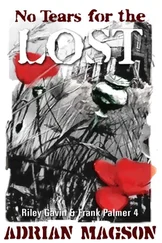“What’s up, brother?” the charging-station man asked. Ita handed him his phone and saw the man look Leda over, alternately like a skewer of meat and a purple elephant.
Leda noticed. She smiled at the man, at the same time averting her eyes and backing away.
Ita handed over the money and rushed back to his charge.
“So,” he said, hoping to soothe her. “What do you plan to teach the children while you are here? Improve their English?”
Leda’s face lit up instantly, like the first rays of sun that woke Ita up every morning. “I was thinking about it last night.”
He couldn’t help but picture her curled up on the table in her blue pajamas, modest enough to hide her body, but thin enough to fuel his fantasy of undergarments.
“I would definitely love to teach them, and read to them, and I’ve brought several cameras, but—” Leda’s voice grew shyer suddenly. “I wanted to see what you thought about the boys’ room. What would you think of building them bunk beds?” She made a gesture with her hand like a shelf.
Ita was caught off guard. There were many things the boys needed before wooden beds, but the thought was touching, and the boys would feel like city princes. And did she mean they would build them together? Ita liked the idea of them working side by side.
“Is that silly?” she asked. “I’m sure there are other things they need first—”
He laughed. “They will love bunk beds. You know how to build them?” He hoped he did not sound discouraging. He was just trying to picture her wielding a hammer.
Now it was Leda’s turn to laugh. “I have a house in the mountains. I’ve discovered that I like building things. Flower boxes and a doghouse.”
“You have a dog?”
“Amadeus,” Leda said, and now Ita knew a way to win a smile from her.
“Mozart. Eine kleine Nachtmusik, the boys like. For me, Requiem—breaks my heart.”
She gasped. But when she smiled, Ita knew she must love the music as much as he did.
“Okay, bunk beds,” he said. “We will need wood and nails.”
She looked down but her voice was even when she spoke. “I would like to donate all the supplies, please.”
A feeling welled up in him that was hard to place—gratitude, excitement, giddiness at the rare taste of money—
“Do the boys like to paint?” she asked.
Surprised again. “Like on paper?”
She smiled. “The walls! We could all paint the orphanage walls together. Would they like to decorate their home? Maybe elephants and birds, rhinos, all the animals from your safari trips.”
The boys had never been on safari. But he was sure they would love painting animals on the walls. Ita liked to draw, too, though how long had it been since he had done it? “They would like that.” A lump rose in his throat and he turned away. He was moved, imagining Leda lying in bed, dreaming up these plans. “Should we get the supplies today? Wood and nails. And paint. We will have to get someone to help us carry them back.”
* * *
The day stretched on that happy way, now that they had a united mission. They found the paintbrushes first, but had to go elsewhere for the paint. They laughed as they discussed their plans, designating zebras their place by the kitchen and monkeys in the bathroom.
On their way to get the wood, Ita couldn’t help himself from tossing questions at her like chicken feed. He wanted to know everything at once. But she didn’t answer. Before his eyes, she caught herself, breathed in and said coyly, “You first,” with a little smile. But Ita would bet it was a practiced defense, that smile no man would deny.
“I grew up here,” he said, watching passersby stare as they walked. “I tried to leave, I wanted to become a doctor. I was on my way, starting school, helping out at a clinic here, but then the orphanage came to be and—” Ita put out his hand to help Leda over a creek of dribbling brown water. The touch of her skin sent shivers through his arm.
Leda caught his eye and looked quickly away. Did she feel it, too, the electricity? “And?” she asked, her voice high in pitch and a little shaky.
“And what?” he said, his hand still closed over hers.
Leda slipped out of his touch and bounded a step ahead, leaving him feeling embarrassed. He was acting like a schoolboy in love. The realization brought him back to Earth and he remembered what he’d been talking about. Broken hopes. How time steals them away. “And days became years,” he said. Could she know what that meant? Dreams dashed, time squandered on poverty, years that raced by as he dealt with one pressing problem at a time? It hurt Ita to speak of his dream, getting further and further away now, of being a doctor.
“I know what you mean,” she said softly.
Ita believed that she did, somehow. He felt the questions returning, piling up—
“But how does an orphanage just come to be?” she asked, and he laughed in spite of himself.
“With a Michael.” He looked to see if she’d learned the children’s names yet. “The tallest boy, the oldest.”
“The protector,” she said simply.
Ita missed a step to look at her. “Yes. That’s Michael.” He pointed out a shadowed walk-through, but stopped before entering so they could catch their breath. “A friend brought him to me. She was sick, and she was out of time. Back then, my dream was dying, too, slipping through my fingers—” Leda was watching him with her wide green eyes. She had this way of making him feel as though they were alone in a quiet room, not in the midst of Kibera traffic. “It seemed like a sign from above. How could I say no?”
Ita looked to the sky, remembering so clearly the four-year-old boy with the serious eyes, hiding behind his mother’s spindly legs. “I thought I would take him to an orphanage, but no one would take him.”
“Why not?”
Ita sighed, feeling the old anger bubble in his blood. “His mother died of AIDS and people thought her child must have it, too. They didn’t want a sick child. One who would die or infect others.”
Leda chewed on her bottom lip. “So you took him in.”
“Yes,” Ita said and smiled, remembering. “I took him everywhere, delighting in everything he did. People saw that I loved him, clothed him, fed him, and—” Ita meant to laugh, but it came out like a sigh, remembering the rainy season after Michael arrived, after Ita had to quit school “—then people started leaving children at my door like flowers.”
A man knocked Ita’s shoulder, snapping him back to the present. It wasn’t safe to stand still like this in the back paths of the slum. Better to keep moving. “You never know, right?” He started toward the shadowy corridor.
“Know what’s coming next?” She stepped into a ray of sunshine.
Ita slipped into the alley. “Never know when you’ll meet the person that will change the path of your life.”
The corridor was only wide enough for one person at a time. A man squeezed past Ita, then jumped when he saw Leda entering the passage.
“Hujambo. Habari ya asubuhi,” she said and wriggled past him, so formal and adorable it made Ita want to kiss her.
He turned around, and as though fate meant to grant his wish, she was watching her feet and ran right into him. It threw him off balance, and they ended up pressed against the mud wall. Ita had just a moment to feel her slender frame, the down on her arms brush against his skin.
She looked up at him, her breath retreating across her pink lips.
“You’re right,” she whispered.
Ita looked at her, a feeling of wonder washing through him.
“You never know,” they both said in unison, then laughed shyly and slipped apart.
Chapter 5
December 30, 2007, Kibera—Ita
Читать дальше












